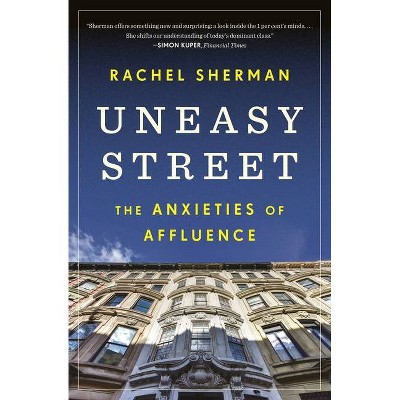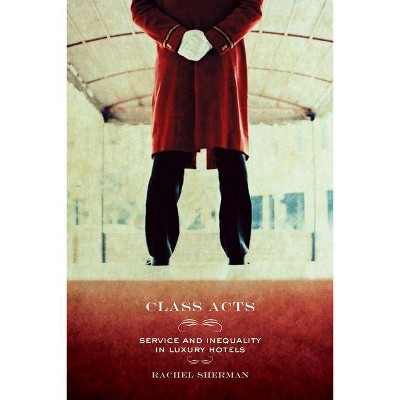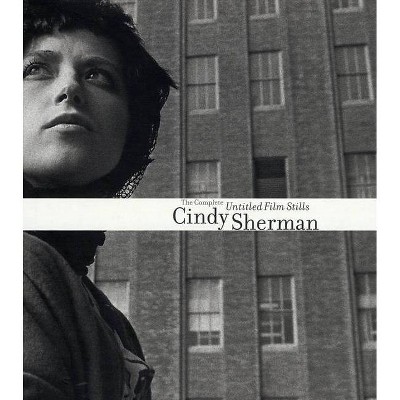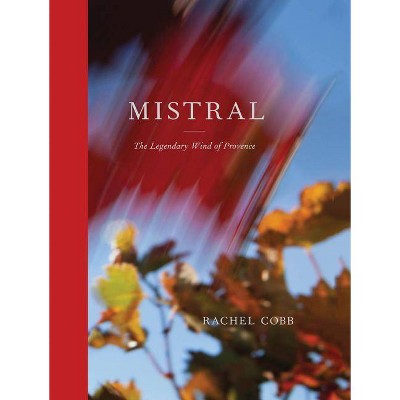Uneasy Street - by Rachel Sherman (Hardcover)
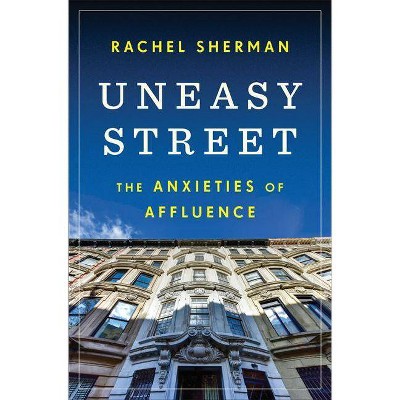
Similar Products
Products of same category from the store
AllProduct info
<p/><br></br><p><b> Book Synopsis </b></p></br></br><p><b>A surprising and revealing look at how today's elite view their own wealth and place in society</b> <p/>From TV's "real housewives" to <i>The Wolf of Wall Street</i>, our popular culture portrays the wealthy as materialistic and entitled. But what do we really know about those who live on "easy street"? In this penetrating book, Rachel Sherman draws on rare in-depth interviews that she conducted with fifty affluent New Yorkers--including hedge fund financiers and corporate lawyers, professors and artists, and stay-at-home mothers--to examine their lifestyle choices and their understanding of privilege. Sherman upends images of wealthy people as invested only in accruing and displaying social advantages for themselves and their children. Instead, these liberal elites, who believe in diversity and meritocracy, feel conflicted about their position in a highly unequal society. They wish to be "normal," describing their consumption as reasonable and basic and comparing themselves to those who have more than they do rather than those with less. These New Yorkers also want to see themselves as hard workers who give back and raise children with good values, and they avoid talking about money. <p/>Although their experiences differ depending on a range of factors, including whether their wealth was earned or inherited, these elites generally depict themselves as productive and prudent, and therefore morally worthy, while the undeserving rich are lazy, ostentatious, and snobbish. Sherman argues that this ethical distinction between "good" and "bad" wealthy people characterizes American culture more broadly, and that it perpetuates rather than challenges economic inequality. <p/>As the distance between rich and poor widens, <i>Uneasy Street</i> not only explores the real lives of those at the top but also sheds light on how extreme inequality comes to seem ordinary and acceptable to the rest of us.</p><p/><br></br><p><b> From the Back Cover </b></p></br></br><p>"At a time of growing class inequality, how do the wealthy grapple with their privileged economic position? In <i>Uneasy Street</i>, Sherman offers a remarkable look inside the world of affluence and shows how the liberal elite struggles to attain moral worthiness. This book skillfully advances our understanding of social class and makes an important contribution to the sociology of money."<b>--Viviana A. Zelizer, author of <i>Economic Lives</i></b></p><p>"Sherman transcends the cartoon caricatures of the wealthy to provide a profound and nuanced picture of the lived experience of affluent New Yorkers. <i>Uneasy Street</i> is an original and insightful look at the complex ambivalence that many wealthy people feel in a time of extreme inequality and the narratives they sometimes tell themselves to rationalize, justify, or ignore their wealth and advantage."<b>--Chuck Collins, author of <i>Born on Third Base</i></b></p><p>"<i>Uneasy Street</i> looks at how rich people talk about the choices they make about money, and how that talk constructs a moral universe in which they can claim legitimacy for their advantages. This book is full of astute observations and sensitive interpretations, and its argument is new and profoundly important."<b>--Allison J. Pugh, University of Virginia</b></p><p>"This exceptionally interesting book examines how one group of wealthy people understands and experiences its extraordinary privilege. Sherman's analysis of elites is long overdue, especially as the popular discourse on inequality has exploded. Beautifully written, <i>Uneasy Street</i> is an exceptional piece of work."<b>--Juliet Schor, author of <i>True Wealth</i></b></p><p/><br></br><p><b> Review Quotes </b></p></br></br><br><i>Uneasy Street</i> is an important book. It is an all too rare empirical study of how the rich see themselves.<b>---Daniel Ben-Ami, <i>Spiked Review</i></b><br><br>Although it is easy to judge the rich for [their] 'anxieties', Rachel Sherman suggests that this often distracts us from examining the wider 'systems of distribution that produce inequality'.<b>---Matthew Reisz, <i>Times Higher Education</i></b><br><br>Ms. Sherman's book does take absorbing measure of what has become a corrosive reality in New York: the tendency among well-off people to regard their circumstances as entirely ordinary 'Manhattan poor' as others have put it.<b>---Ginia Bellafante, <i>New York Times</i></b><br><br>Sherman offers something new and surprising: a look inside the 1 per cent's minds. . . . She shifts our understanding of today's dominant class.<b>---Simon Kuper, <i>Financial Times</i></b><br><br>Sherman's analysis is informative, insightful, and nuanced.<b>---Glenn Altschuler, <i>Psychology Today</i></b><br><br>There have been many cogent analyses of income inequality. Sociologist Rachel Sherman's welcome addition probes the psychology and socio-economics of affluence.<b>---Barb Kiser, <i>Nature</i></b><br><br>There's a lot of abstract talk about the 1 percent, but how do they really live? The sociologist Rachel Sherman's new book, <i>Uneasy Street: The Anxieties of Affluence</i>, draws on her interviews with 50 wealthy New Yorkers to give us a sense. Sherman takes a dispassionate approach to find out how those who are 'benefitting from rising economic inequality' experience 'their own social advantages.' She elicits her subjects' thoughts about work and productivity, charitable giving, marital discord and more. Worthwhile humanizing ensues, as do plenty of squirm-inducing moments.<b>---John Williams, <i>New York Times Book Review</i></b><br><br>We don't know as much about affluent people as we think we do. Caricatures abound, but the socioeconomically lucky don't often offer themselves up for study. That all changed with Rachel Sherman's <i>Uneasy Street</i>. Nominally a sociologist, Sherman has written what is really a psychological study, and I've found myself returning to it frequently to remind myself of uncomfortable questions that lurk just below the surface of the lives of people who have much more than average. . . . The voyeurism here is minimal; the judgment nearly nonexistent. But with each reading, I'm a little more unsettled, in the best possible way.<b>---Ron Lieber, <i>New York Times</i></b><br><p/><br></br><p><b> About the Author </b></p></br></br><b>Rachel Sherman</b> is associate professor of sociology at the New School for Social Research and Eugene Lang College. She is the author of <i>Class Acts: Service and Inequality in Luxury Hotels</i>. Sherman lives in New York.
Price History
Cheapest price in the interval: 24.49 on November 8, 2021
Most expensive price in the interval: 24.49 on December 20, 2021
Price Archive shows prices from various stores, lets you see history and find the cheapest. There is no actual sale on the website. For all support, inquiry and suggestion messagescommunication@pricearchive.us
